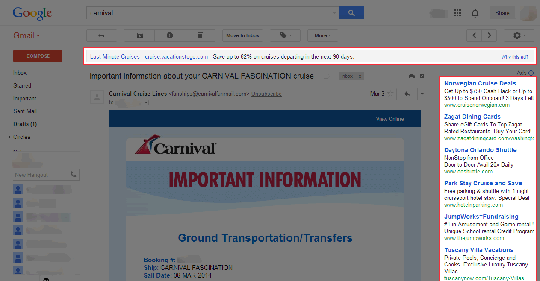April 29, 2014
| Article | Advertising,
Search Engine Optimization
Google Victorious in Recent Class Action Suit
Recently, some people took exception to Google's targeting of ads to Gmail users and filed a class action lawsuit suing Google for the violation of privacy. Google is able to offer Gmail for free because of its robust advertising revenue source. In fact, Google earned more than $50 billion in ad revenues in 2013 - an impression 16% increase over 2012. The Google Display Network, the largest display media network in the world, is successful due in part to the large number of publishers in the network and its targeting options for advertisers. More targeted ads receive more clicks, which pleases advertisers and results in more revenue for ad publishers. To help serve more targeted ads to users, Google automatically scans the content of emails for keywords that are used to display relevant advertising across the Google Display Network.

In May 2013, a class action suit was filed, claiming that the practice of scanning emails violated the Electronic Communications Privacy Act of 1985, California's Invasion of Privacy Act, Maryland's Wiretap Act, and Florida's Wiretap Act. Google argued that this practice was common knowledge and that anyone who had knowledge of the practice and continued using Google products or sending emails to Gmail users gave their implied consent. The case was dismissed as a class action suit because it was determined that many of the plaintiffs had likely given their implied consent and, therefore, it could be examined only on a case-by-case basis.
Google began automatically scanning email content in early 2010. It used this intelligence to target ads in Gmail inboxes and on third-party websites across the Google Display Network. In the Google Display Network, advertisers choose specific keywords, topics and categories to target ads. Google serves those ads to users who have sent or received emails containing related keywords. In a concession to email privacy, the ad targeting is fully automated: no humans are reading Gmail emails or account information in order to target the advertisements.
Although the lawsuit dealt specifically with Gmail, Google uses other services to determine targeting. Google may also use your Google search queries, the sites you visit, Google Profile, +1's and other Google Account information to show you more relevant ads across the Google Display Network. All of this information, including the keywords discovered through Gmail, may be used to target a user based on their interests and online behaviors.
Google's revenue relies on their ability to serve targeted ads. It is important to realize that using Google services constitutes implied consent to Google's collection of information for ad targeting purposes. Anyone can opt out of retargeted advertising at the Network Advertising Initiative website.